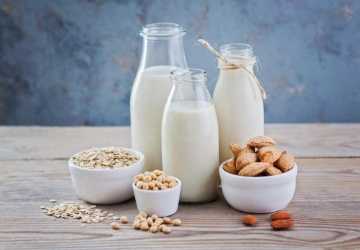What Is the Optimal Time for Hydration?
This discussion of the essentials of fluid replacement provides a nuanced perspective on the adequacy of fluid intake and its strategic timing to increase physiological health and vitality. This education goes beyond traditional methods, examining the best times to hydrate through the intricacies of timing, reinforcing this essential nutrient's physical and mental benefits.
Deciphering peak periods of water consumption
Water is the essence of life, and if consumed carefully at critical times throughout the day, its beneficial effects on body function and overall vitality can be maximized, thereby enhancing health.

Lifeblood of dawn
Starting your daily cycle with water is more than just a pick-me-up. It acts as a catalyst for metabolic activation, eliminates toxins accumulated overnight, and provides a hydration foundation for daily needs. This morning hydration ritual can alleviate overnight hydration deficits and set the tone for the day ahead.
● Key Insight: A night's rest can trigger a state of dehydration, so the first fluid intake of the day is critical to restoring fluid balance.
Strength and Recovery: The Hydration Paradigm
Physical exertion increases the body's need for fluids due to increased sweating. Proactive hydration before exercise can help prepare the body and improve endurance and performance, while post-exercise hydration is essential for recovery and rehydration to avoid the risk of dehydration.
● Key Aspects: Optimal hydration increases performance motivation and facilitates post-exercise recovery.
Best-in-class hydration for cooking
Drinking water before meals is a prelude to improving digestion efficiency. It creates a feeling of fullness and may reduce the tendency to overeat—this pre-meal fluid intake promotes digestive health and helps maintain nutritional balance.
● Beneficial effects: It improves digestive performance and regulates appetite, promoting overall digestive health.
Night and morning hydration symbiosis
Hydrating before retiring at night can compensate for the lack of fluids during sleep, especially if you live in a dry environment or are prone to night sweats. Adequate water can reduce the risk of sleep disturbances caused by nocturnal urination. At the same time, resuming fluid intake upon waking aids the body's repair and regeneration processes during drowsiness.
● Relevance: Strategic hydration before bed and at dawn promotes smooth physiological function and supports nighttime recovery.
The dangers of dehydration
Education about the harmful effects of inadequate fluid intake emphasizes the need for careful timing of fluid intake. Mild dehydration can manifest as malaise, fatigue, and impaired cognitive function, and long-term neglect can lead to serious health problems, including kidney stones and urinary tract complications.
Watch for early signs of needing hydration
While the above paradigm represents a basic scheme, adjusting physiological cues for hydration is still critical. Secondary indicators such as urine colour can provide further insight into fluid balance, but thirst signals require immediate attention. Light straw-coloured urine indicates adequate fluid intake.
Strategies to Boost Moisture
● Infusing botanical or fruit flavours into the water can increase appeal and encourage more frequent drinking.
● Keep a water container on hand to ensure constant hydration.
● Set regular reminders for those who often neglect to drink enough water.
The integral role of hydration in improving mental precision and emotional balance
The link between optimal hydration times and brain function provides a rich area for scientific research. Drinking water regularly positively affects human vitality, improves cognitive abilities, and maintains emotional harmony.

Improve cognitive acuity
Prompt hydration boosts neurodynamics and cognitive mechanisms, leading to maximum concentration, memory consolidation, and improved decision-making skills. The brain thrives on adequate hydration, and neurotransmission and synaptogenesis are significantly enhanced.
● Insightful Observation: A well-supplied brain with fluids allows optimal performance, improved intelligence, and increased mental resiliency.
Harmonizing emotions and emotional well-being
Differences in optimal hydration times have profound consequences for cognitive status and emotional well-being. Insufficient fluid intake is associated with increased stress, anxiety, and mood swings. Maintaining a balanced fluid balance ensures a stable emotional state and reduces the effects of tension and fatigue.
● Key Benefits: Hydration is a crucial element of mental health as it promotes mood stability and reduces the effects of stress-related abnormalities.
The symbiotic relationship between hydration and restful sleep
When you look at the best times to hydrate while sleeping, you'll see its profound impact on sleep quality and circadian rhythms. To obtain undisturbed, restful sleep, it is crucial to find the right balance in the timing of fluid intake to avoid excessive fluid intake during the night.
Optimize sleep with strategic hydration.
Carefully timed hydration can significantly improve sleep quality by easing nocturia and promoting the body's thermoregulatory process, which is essential for entering the deep sleep stages. Achieving this balance is critical to optimizing sleep quality and fluid balance.
● Basic strategy: Improving your drinking habits and synchronizing them with your body's sleep patterns can significantly improve sleep quality and overall health.
Hydration precautions throughout the ageing process
As adults mature, hydration needs and thirst may change, requiring more targeted management of water consumption. Considering the different fluid needs of various stages of life ensures long-lasting vitality and health.
Hydration Tailored to the Physiology of Aging
Recognizing and considering age-related changes in fluid needs can prevent health complications. Older adults may need tailored guidance or approaches to ensure they achieve their hydration goals.
● Tailored recommendations: Tailored hydration methods for older adults can reduce the likelihood of long-term dehydration and related health consequences.
Pioneer in drinking technology
Leveraging technological innovation to improve hydration
Incorporating technological innovation into hydration methods revolutionizes traditional practices and optimizes achieving and maintaining optimal hydration levels.
● Technological advancements: Leveraging smart devices and cutting-edge hydration monitoring apps provide customized and practical ways to maintain ideal fluid balance.
Diploma
Determining the best time to drink water depends on thoroughly understanding a person's circadian rhythms and scheduling water intake according to those rhythms. Incorporating these sophisticated hydration strategies into your daily routine will improve your hydration status and overall health and vitality.







